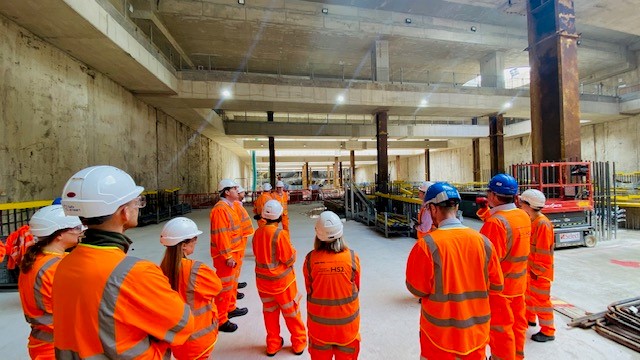The HS2 programme, after the cancellation of its latter stages to run only from London to the West Midlands will offer very poor value for money for the taxpayer.
In a report published today, the Public Accounts Committee (PAC) offers its verdict on both the high-speed rail programme and Euston station.
The Government has accepted that delivering only Phase 1 will not be value for money, as its total costs significantly outweigh its benefits. The Department for Transport (DfT) told the PAC it was still better to complete Phase 1 – a calculation made by excluding the £23bn spent to date, and including as a benefit of the project avoiding approximately £11bn* of remediation costs from cancelling entirely. The PAC has been left with little assurance over the calculations, and calls for a clear summation of Phase 1’s benefits.
The report raises questions as to the many as-yet unknown ramifications of the decision to cancel HS2’s Northern leg.
These range from how land and property now no longer needed will be disposed of, taking into account the needs of the taxpayer, local interests and fairness to those who have had their properties compulsorily purchased; impacts on other rail projects dependent on the cancelled phases; what will be delivered with a redirected £36bn and when; down to how the high-speed trains (which will likely run slower than existing trains on tracks not designed for their speed) will operate as part of the network.
As repeatedly highlighted by the PAC, cost overruns and delays have been a constant problem throughout the whole HS2 project. The estimated cost of the completion of Phase 1 with inflation range as high as £67bn.
Poor cost management indicates a failure of governance and oversight at both HS2 Ltd and DfT, and the report calls for answers within six months as to how these issues will now be brought under acceptable and properly accountable control.
The report warns there are also urgent decisions to be made on funding the development of HS2 Euston, which is dependent on attracting private finance to pay for it. The Government has no plan yet on how to make this happen, and the PAC is highly sceptical that investment can be attracted of the scale and speed required to make Euston a success.
Dame Meg Hillier MP, Chair of the Committee, said:
“The decision to cancel HS2’s Northern leg was a watershed moment that raises urgent and unanswered questions, laid out in our report. What happens now to the Phase 2 land, some of which has been compulsorily purchased? Can we seriously be actively working towards a situation where our high-speed trains are forced to run slower than existing ones when they hit older track? Most importantly, how can the Government now ensure that HS2 deliver the best possible value for the taxpayer?
HS2 is the biggest ticket item by value on the Government’s books for infrastructure projects. As such, it was crying out for a steady hand at the tiller from the start. But, here we are after over a decade of our warnings on HS2’s management and spiralling costs – locked into the costly completion of a curtailed rump of a project with many unanswered questions and risks still attached to delivery of even this curtailed project.”
Responding to the report, Lord McLoughlin, Transport for the North Chair, said:
“We know the North has huge economic potential, but poor connectivity is holding the region back. Transport for the North’s ambition is to close the productivity gap, decarbonise surface transport and improve opportunities for all. That requires transformational investment in our transport system, and none more so than in our railways.
“The decision to stop HS2 at Birmingham is a missed opportunity for the North, and the country as whole. It wasn’t just the improved North-South connectivity it would have enabled, but the extra capacity it provided, both in terms of the new high-speed line and in the space freed up on the existing network to run more services. This would have benefited passengers and freight.
“Transport for the North’s evidence shows those capacity and connectivity needs haven’t changed, and we need still need that transformational investment in pan-regional transport to support levelling up. We will continue to work with government to address these challenges and deliver the benefits citizens and businesses across the North need.”







